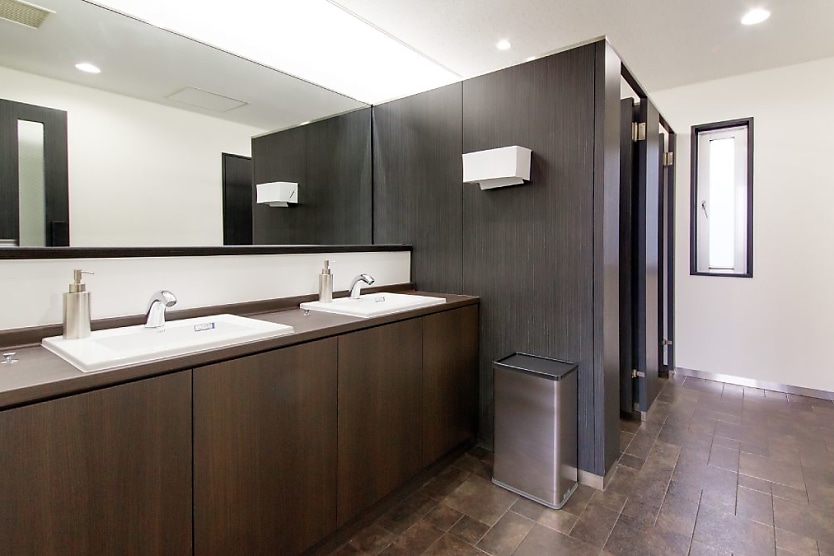
Research has found that workplaces that lack adequate bathroom facilities are leaving employees stressed and anxious.
A study by Researchify and Rentokil Initial found that 50 per cent of Aussie workers are having their mental health affected by workplaces not providing good enough access to menstruation disposal solutions.
“With many employers focusing on mental health in the workplace, it’s shocking that so little has been done to support washroom dignity at work, yet it’s impacting employees every day,” said Andrew Stone, managing director, Pacific, at Rentokil Initial.
“Washroom dignity is a conversation that has flown under the radar among many businesses for years, but that has got to change. We want employers to create more inclusive washrooms, remove the stigma around menstruation and incontinence at work and offer free and easy access to products and waste disposal solutions.”
According to the research, a lack of facilities for workers in impacting overall productivity, with 55 per cent of women stating that they have had to take time off work to buy sanitary products.
Another 19 per cent of respondents said they’d taken days off because “they weren’t confident their workplace had the right products or disposal solutions to meet their menstrual or incontinence needs”.
Furthermore, 60 per cent said they’re more likely to work from home when they need access to menstruation products.
“Not everyone has the option to work from home, and with so many businesses looking for creative ways to encourage their employees back to the office post-pandemic, providing adequately stocked washrooms and creating an environment that employees feel comfortable working in seems like a simple way to reduce unnecessary absence or work-from-home days,” said Mr Stone.
Rentokil is urging employers to break the taboo surrounding menstruation products and provide adequate facilities for workers. The NSW government has already taken a step in this direction by providing period products to NSW public schools.
Mr Stone continued: “The state governments’ actions have set a new benchmark for washroom dignity among young Australians. We hope employers will follow suit and start to implement changes now to provide the facilities new entrants to the workplace will come to expect given their experiences at school.”
Rentokil noted that this issue isn’t strictly about women, with 37 per cent of men agreeing that a lack of washroom dignity leaves them stressed or anxious.
Gender equity researcher Sarah Duffy said workplaces need to work harder to create a safe and inclusive environment: “My research has found that product provision reduces tension and anxiety and also helps women and people who menstruate to feel seen and included. Based on my findings, I’m confident that employees will respond positively to this change.”
“Dignity in the washroom is an issue that disproportionately affects women and people who menstruate, who quite frankly face enough challenges in the workplace. It’s imperative that washrooms are changed to be more inclusive so that all Australians have the opportunity to thrive at work.”
Jack Campbell
Jack is the editor at HR Leader.










